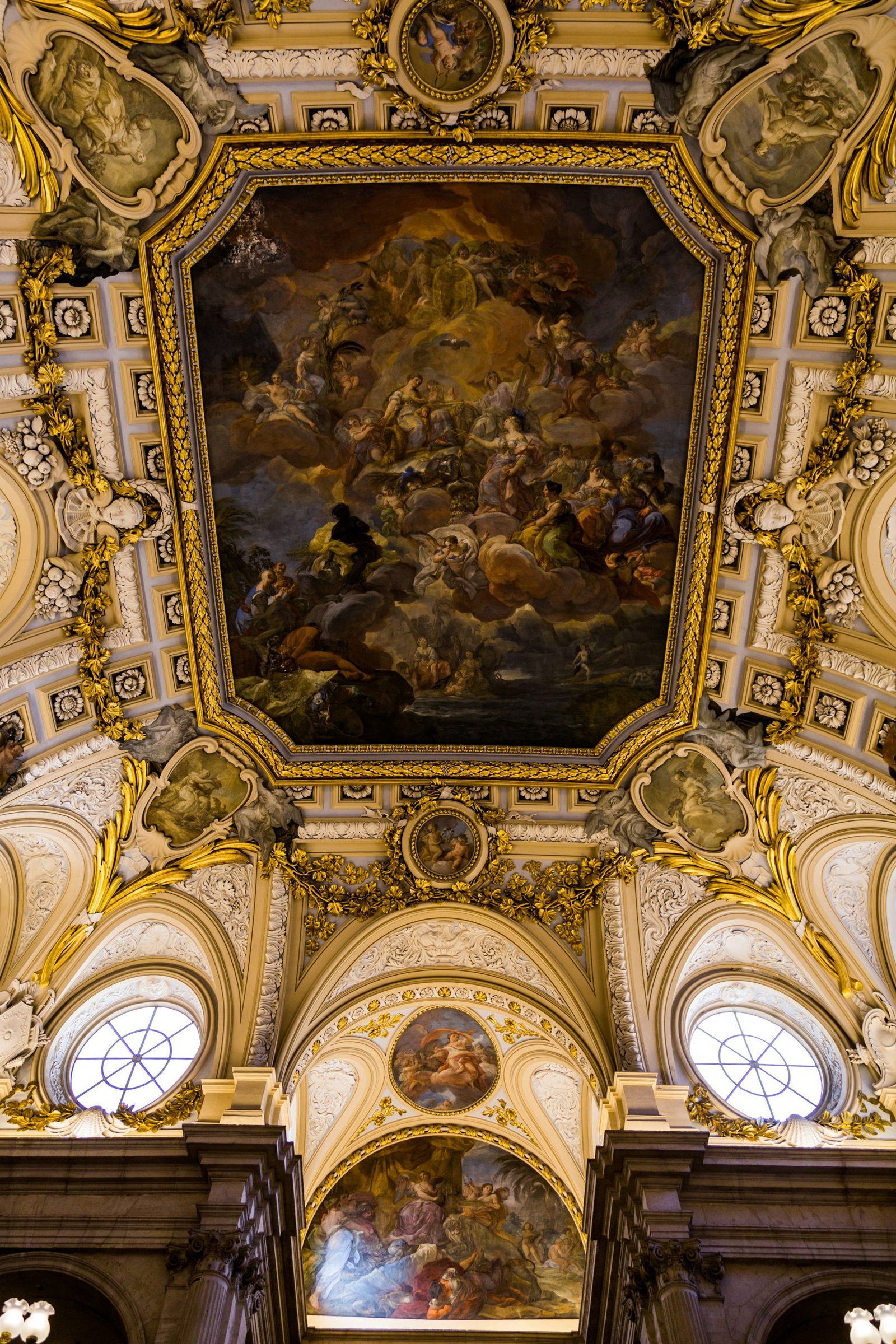01 Apr Unveiling Spain’s Rich Cultural Heritage: Dive into the Authenticity of Local Traditions and Customs
The Flamenco
More Than Just a Dance
Flamenco is not just a dance; it's a passionate expression of the Spanish soul. This Andalusian art form combines singing, dancing, and guitar playing into a captivating performance. The raw emotion and intense passion displayed in Flamenco are truly mesmerizing.
Flamenco is deeply rooted in Spain's history, particularly in the region of Andalusia. It's a fusion of various cultures including Gypsy, Moorish, and Jewish influences. The dance is characterized by its emotional intensity, intricate footwork, and expressive body movements.
Experiencing a live Flamenco performance is a must when visiting Spain. The intimate setting of a 'tablao' (Flamenco venue), the soulful music, and the passionate dance create an unforgettable experience. It's a deep dive into the heart of Spanish culture.
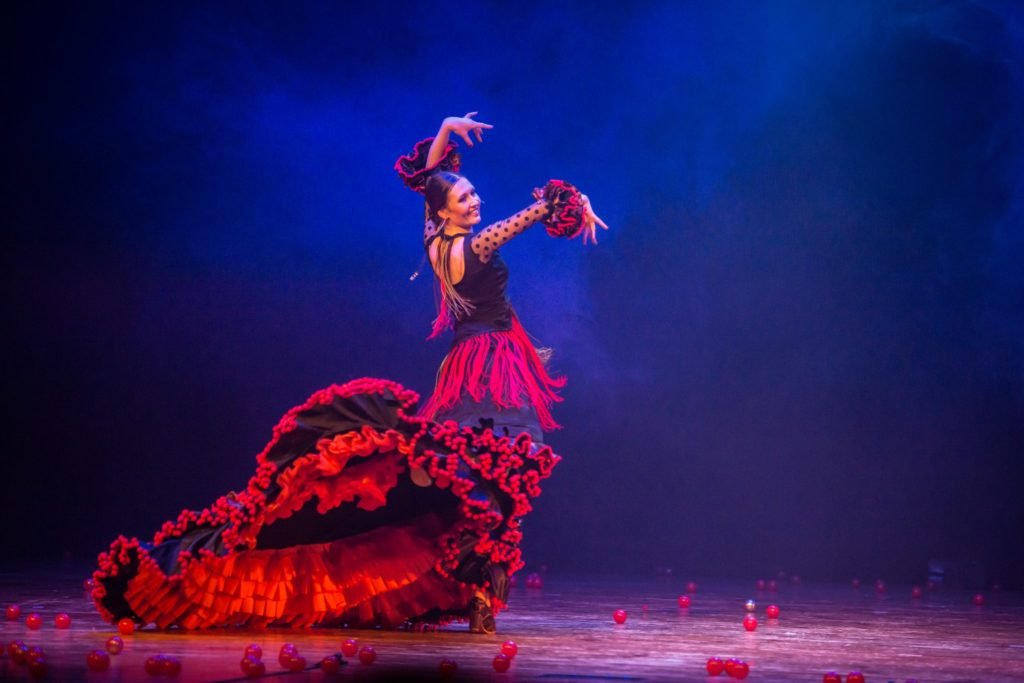
Bullfighting
A Controversial Tradition
Bullfighting, or 'corrida de toros', is a traditional Spanish spectacle that dates back to ancient times. It's a ritualistic event where a matador (bullfighter) faces off against a bull in a dramatic display of bravery and skill.
While bullfighting is deeply ingrained in Spanish culture, it's also a subject of controversy. Animal rights activists argue that it's a cruel and outdated practice. However, supporters view it as an integral part of Spain's cultural heritage.
Despite the controversy, bullfighting remains a popular event in Spain, particularly during local festivals. The grandeur of the bullring, the pageantry of the procession, and the drama of the fight create a spectacle that's uniquely Spanish.
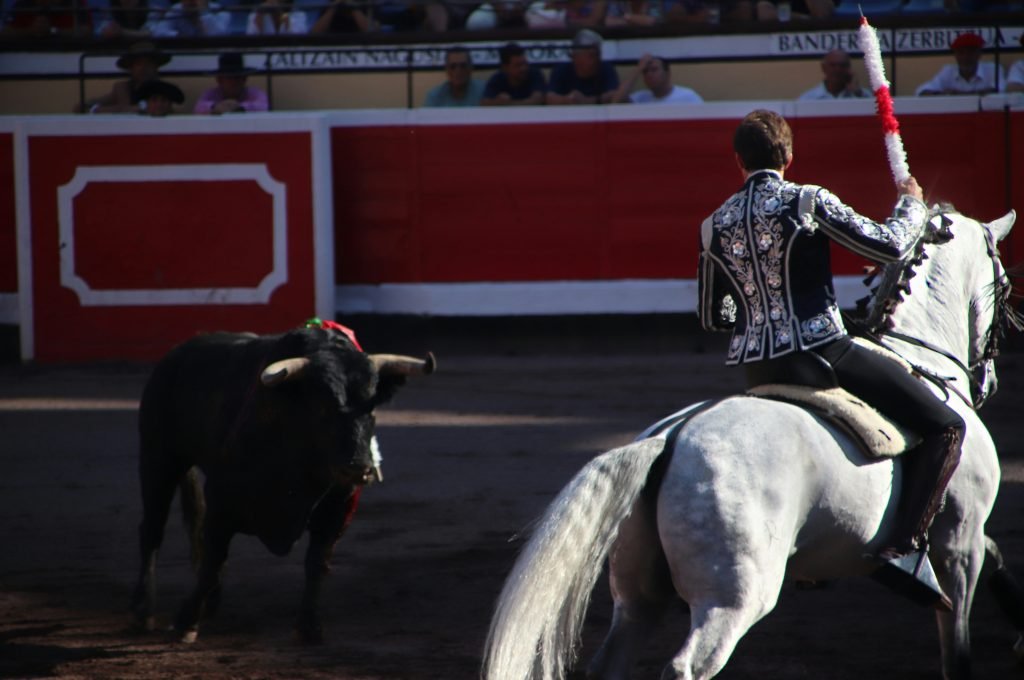
Spanish Cuisine
A Gastronomic Adventure
Spanish cuisine is a delicious reflection of the country's rich cultural heritage. It's characterized by its use of fresh, local ingredients and a variety of cooking techniques. From the hearty stews of the north to the fresh seafood of the coast, Spanish food is diverse and flavorful.
Tapas, small plates of food shared among friends, are a quintessential part of Spanish dining culture. They range from simple dishes like olives and cheese to more elaborate creations like 'pulpo a la gallega' (Galician-style octopus). Tapas are more than just food; they're a social tradition.
Paella, a saffron-infused rice dish, is another iconic Spanish dish. Originating from Valencia, paella is a communal dish typically cooked over an open fire. It's a delicious symbol of Spanish hospitality and culinary prowess.
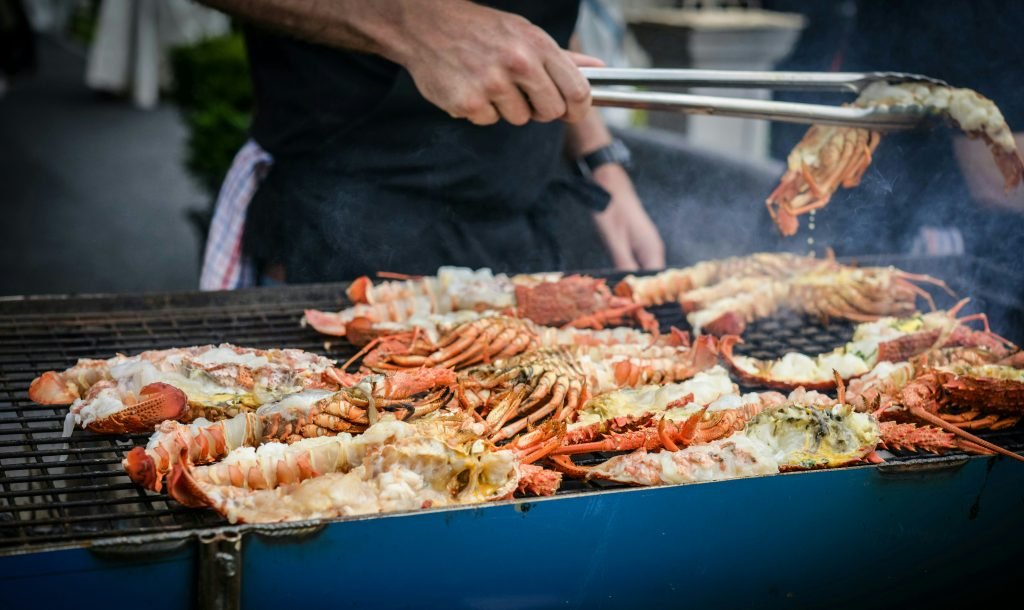
Fiestas
The Heartbeat of Spanish Culture
Fiestas, or festivals, are a vibrant part of Spanish culture. There's a time for celebration, tradition, and community. From religious processions to lively street parties, fiestas showcase the joyous spirit of the Spanish people.
One of the most famous fiestas is 'La Tomatina', a tomato-throwing festival in the town of Buñol. Participants engage in a massive tomato fight, turning the streets into a sea of red. It's a fun and messy celebration that attracts visitors from around the world.
'Las Fallas' in Valencia is another notable fiesta. It's a week-long celebration featuring large-scale sculptures, fireworks, and parades. The event culminates in a spectacular display of fire as the sculptures are burned, symbolizing the arrival of spring.
Spanish Architecture
A Journey Through Time
Spanish architecture is a testament to the country's rich history. From the grand cathedrals of the Middle Ages to the modernist designs of the 20th century, Spain's architectural landscape is diverse and impressive.
The Alhambra in Granada is a stunning example of Moorish architecture. Its intricate tilework, ornate arches, and lush gardens are a visual feast. The Alhambra is a symbol of Spain's Islamic past and a UNESCO World Heritage site.
Barcelona is home to the works of Antoni Gaudí, a renowned architect known for his unique style. His masterpiece, the Sagrada Familia, is a breathtaking basilica that's been under construction for over a century. Gaudí's whimsical designs are a highlight of any visit to Barcelona.
Language
The Soul of Spain
Language is a vital part of Spain's cultural identity. Spanish, or 'español', is the second most spoken language in the world. It's a beautiful, expressive language that reflects the warmth and passion of the Spanish people.
Spain is a linguistically diverse country with several co-official languages. In regions like Catalonia, the Basque Country, and Galicia, languages such as Catalan, Basque, and Galician are widely spoken. This linguistic diversity adds to the richness of Spain's cultural tapestry.
Learning a few phrases in Spanish can enhance your travel experience. It's a way to connect with locals and immerse yourself in Spanish culture. Plus, it's a skill that can be useful beyond your trip to Spain.
Art
Spain's Creative Expression
Spain has a rich artistic heritage that spans centuries. From the cave paintings of Altamira to the surrealism of Salvador Dalí, Spanish art is diverse and influential.
The Prado Museum in Madrid houses one of the finest collections of European art. It features works by Spanish masters like Velázquez, Goya, and El Greco. A visit to the Prado is a journey through Spain's artistic history.
Spain is also the birthplace of Pablo Picasso, one of the most influential artists of the 20th century. His ground-breaking style and innovative techniques revolutionized the art world. The Picasso Museum in Barcelona is a must-visit for art enthusiasts.
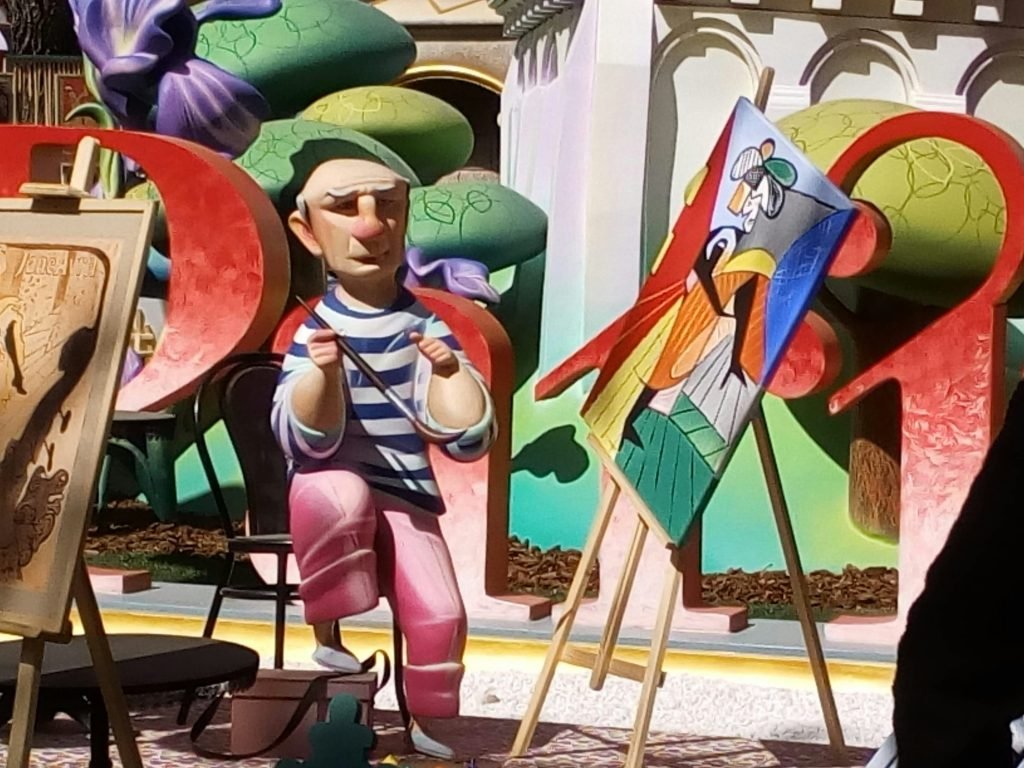
Music
The Rhythm of Spain
Music is an integral part of Spanish culture. It's a reflection of the country's diverse influences and regional identities. From the passionate Flamenco of Andalusia to the lively 'jota' of Aragon, Spanish music is as varied as it is captivating.
Spain is also known for its contribution to classical music. Composers like Isaac Albéniz, Enrique Granados, and Manuel de Falla have left a lasting legacy. Their compositions, inspired by Spanish folk music, are celebrated worldwide.
Contemporary Spanish music is a blend of traditional styles and modern influences. Artists like Rosalía, Enrique Iglesias, and Alejandro Sanz have achieved international success. Their music is a testament to Spain's vibrant and evolving music scene.
Fashion
Spain's Stylish Statement
Spain is a fashion powerhouse with a distinct style. Spanish fashion is known for its bold colors, intricate details, and high-quality craftsmanship. From luxury brands to fast fashion, Spain has made a significant impact on the global fashion industry.
Spain is the birthplace of renowned fashion designers like Cristóbal Balenciaga and Paco Rabanne. Their innovative designs and creative vision have influenced generations of designers. Today, Spanish brands like Zara, Mango, and Desigual are popular worldwide.
Spain also hosts several fashion events throughout the year. The Mercedes-Benz Fashion Week Madrid is a major event that showcases the latest trends and emerging talents. It's a testament to Spain's status as a fashion capital.
Planning Your Cultural Immersion
Experiencing Spain's rich cultural heritage requires careful planning. It's about more than just visiting tourist sites; it's about immersing yourself in the local culture. This involves engaging with locals, trying traditional foods, and participating in local traditions.
At Inso Travels, we specialize in crafting journeys that go beyond typical tourist experiences. Our expert planners are deeply attuned to the cultural nuances of each destination. This allows us to curate personalized itineraries that provide an authentic and immersive experience, connecting travelers with the heart and soul of a place.
Whether you're interested in exploring Spain's art scene, experiencing its vibrant festivals, or diving into its culinary delights, we can create a customized itinerary that aligns with your interests. Contact us today to start planning your cultural immersion in Spain. Let us take care of the details while you focus on making memories.
Plan a trip with us and dive into the authenticity of local traditions and customs. Check out our travel guides for more information on Spain's rich cultural heritage. If you have any questions or need further assistance, feel free to contact us.





